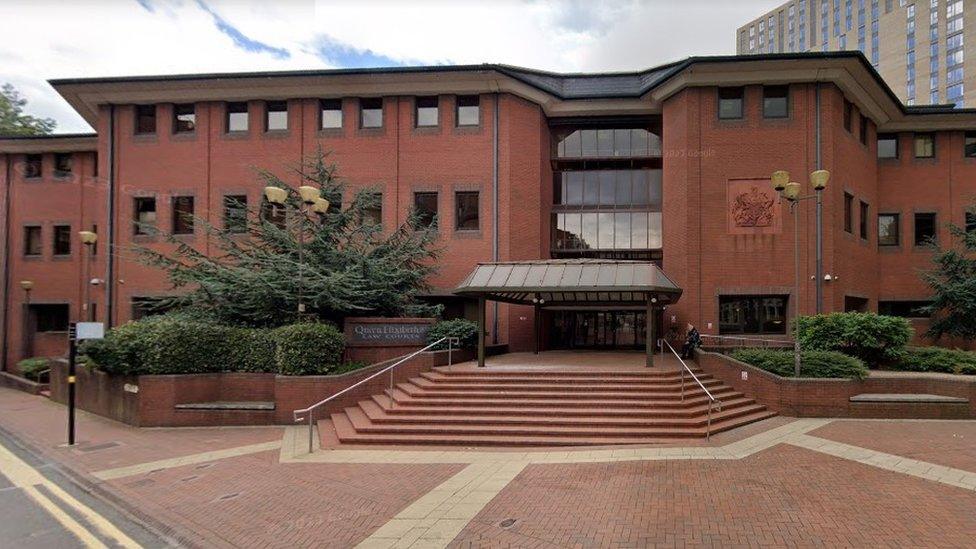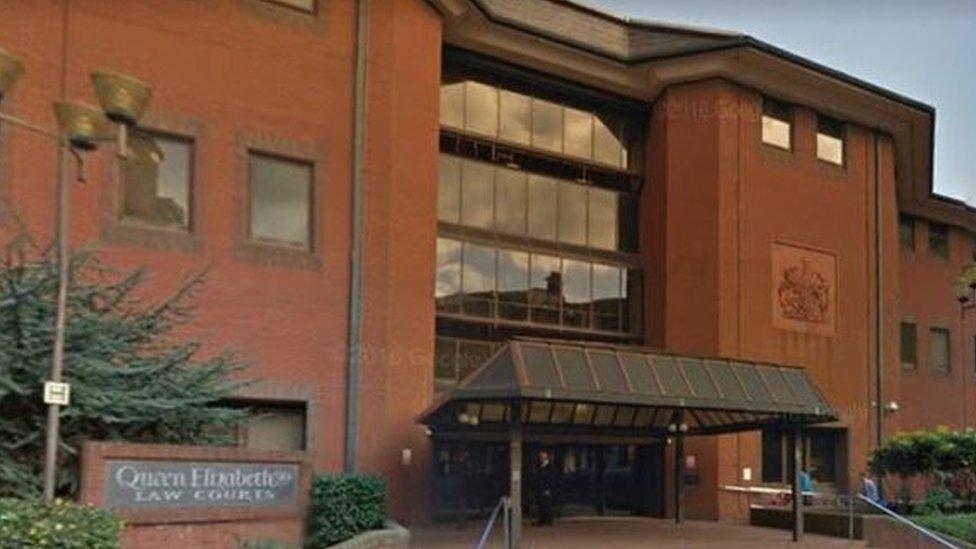Student accused of terrorism wanted to argue against IS, court told
- Published

The court heard Mr Al-Bared had been diagnosed with autism spectrum disorder while in custody
A PhD student accused of plotting to make a drone capable of delivering a bomb was "fascinated" by the Islamic State group because he wanted to argue against their views, a court has heard.
At Birmingham Crown Court, prosecutors have alleged Mohamad Al-Bared wanted to supply the terror group with a drone.
Defence barrister Alistair Webster KC the group "fascinated" the 26-year-old but he wanted to "argue against it".
Mr Al-Bared, from Coventry, has denied engaging in preparation for terrorism.
In his opening speech on the second day of the trial, Mr Webster told the jury that while "thoroughly repugnant" content, including videos of beheadings, was found on devices linked to the mechanical engineering graduate, it was there because he wanted to "debate" against the terror group's views.
"He accepts that he is fascinated by Islamic State and its mindset, but rather than supporting it, he wanted to argue against it, in the mosque, online," he said.
He said Mr Al-Bared, who was highly intelligent and well-educated, had been diagnosed with autism spectrum disorder while in custody.
"He has been examined by the psychiatrists for the prosecution and the defence," he said.
"They are in agreement, they both agree that he suffers from autistic spectrum disorder, what some used to call Asperger's."
'Far more complicated'
The jury was told the condition was relevant because it affected how Mr Al-Bared would present in court and, in the view of a psychiatrist, meant he could be obsessive and fixated on interests to an abnormal degree.
Mr Webster said while Mr Al-Bared did not believe he had the condition, he was "wrong on that because both psychiatrists have come to the conclusion that he has".
"His case is his principal reason for interest in Islamic State was how they think, so he could debate against their point of view," he said.
"He was constructing a drone, and consulting others in relation to it... for his own research purposes, totally unconnected with designing a weapon."
He said work on the drone had been linked to dissipating heat from electric motors and not on delivering any sort of weapon.
The barrister added that Mr Al-Bared also had "a great interest [in] many religions", adding: "He accepts he was fascinated by jihadism, but his fascination by it does not, by any means, mean that he embraced it.
"He does not accept that he completed any form to join Islamic State or any other similar organisation."
He added that jurors needed to what was in Mr Al-Bared's head, which was "far more complicated than the prosecution would have you believe".
The trial continues.

Follow BBC West Midlands on Facebook, external, Twitter, external and Instagram, external. Send your story ideas to: newsonline.westmidlands@bbc.co.uk, external
Related topics
- Published23 August 2023
